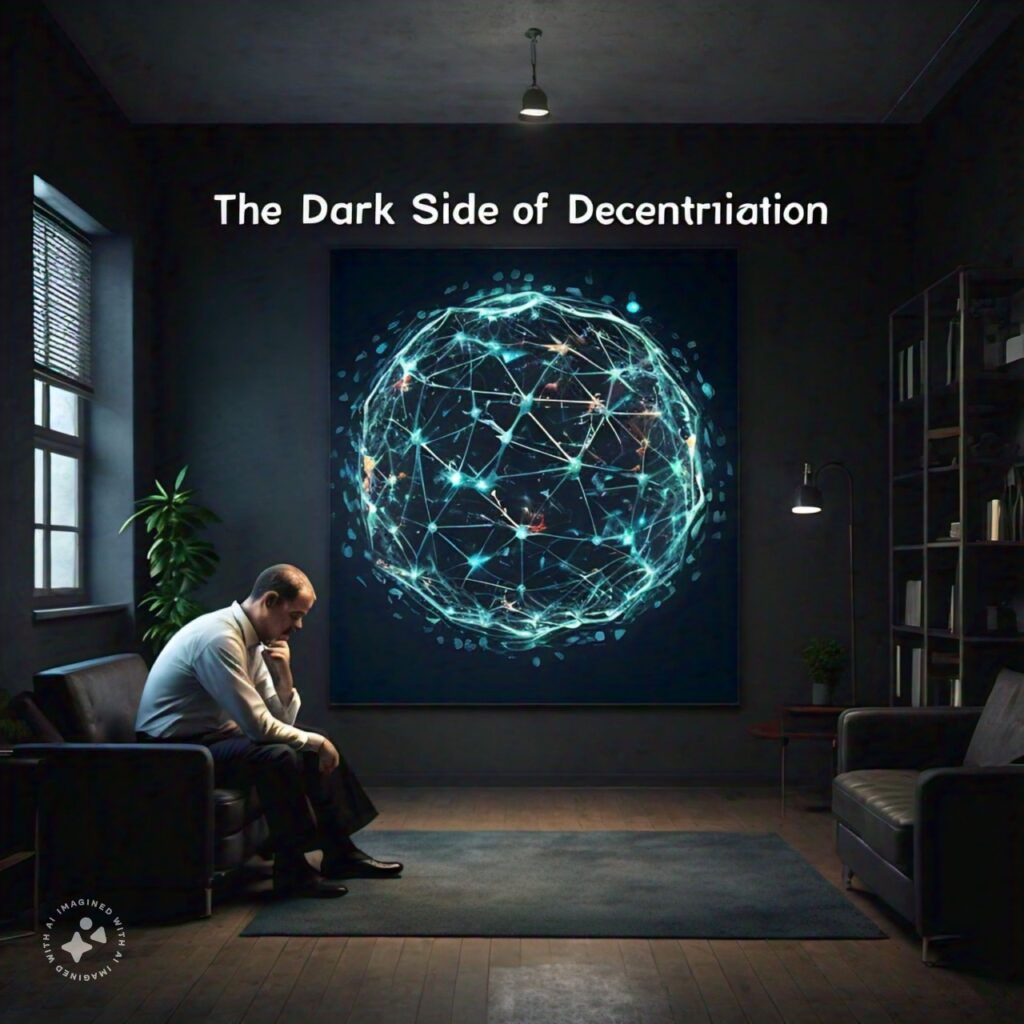 The Dark Side of Decentralization: Unpacking the Unintended Consequences of Web3’s Quest for Anonymity and Autonomy
The Dark Side of Decentralization: Unpacking the Unintended Consequences of Web3’s Quest for Anonymity and Autonomy
Syndicated by Web3Network.com
The decentralized web, or Web3, has been hailed as a revolutionary new era for the internet. With its promise of anonymity, autonomy, and censorship-resistance, it’s no wonder that many see it as a beacon of hope for a more democratic and open online community. But, as with any technology, there’s a darker side to decentralization that’s often overlooked.
The Rise of Anonymous Illegal Activities
One of the most pressing concerns with decentralization is the rise of anonymous and untraceable illegal activities. With the advent of privacy coins and decentralized marketplaces, criminals have found new ways to operate under the radar, evading law enforcement and tax authorities alike.
From drug trafficking to weapons sales, the dark web has become a haven for illicit activities. And, with the anonymity afforded by decentralized technologies, it’s becoming increasingly difficult for authorities to track down and prosecute these criminals.
The Amplification of Harmful Content
Another issue with decentralization is the amplification of harmful or hateful content. With the lack of centralized moderation, decentralized platforms can become breeding grounds for hate speech, disinformation, and extremist ideologies.
This has serious consequences, from the spread of misinformation to the radicalization of vulnerable individuals. And, with the anonymity of decentralized platforms, it’s often impossible to hold perpetrators accountable.
The Concentration of Power
Decentralization is often touted as a way to distribute power and democratize decision-making. But, in reality, power is often concentrated in the hands of a small group of nodes or validators.
This can lead to a form of decentralized oligarchy, where a small group of actors wield disproportionate influence over the network. And, with the lack of transparency and accountability, it’s often difficult to know who’s really in control.
The Environmental Impact
Finally, there’s the environmental impact of decentralized technologies to consider. With the energy-intensive nature of mining and transactions, the carbon footprint of Web3 is becoming increasingly significant.
As the world grapples with the challenges of climate change, it’s hard to justify the energy waste and pollution generated by decentralized networks. And, with the lack of regulation and oversight, it’s often difficult to hold anyone accountable.
The Bottom Line
Decentralization has the potential to revolutionize the way we interact online, but it’s not a panacea. As we continue to build out the Web3 ecosystem, it’s important to acknowledge the darker side of decentralization and work to mitigate its unintended consequences.
This means implementing measures to prevent illegal activities, amplifying harmful content, and concentrating power. It means developing more sustainable and environmentally-friendly technologies. And, above all, it means being honest about the trade-offs we’re making in the name of anonymity and autonomy.





